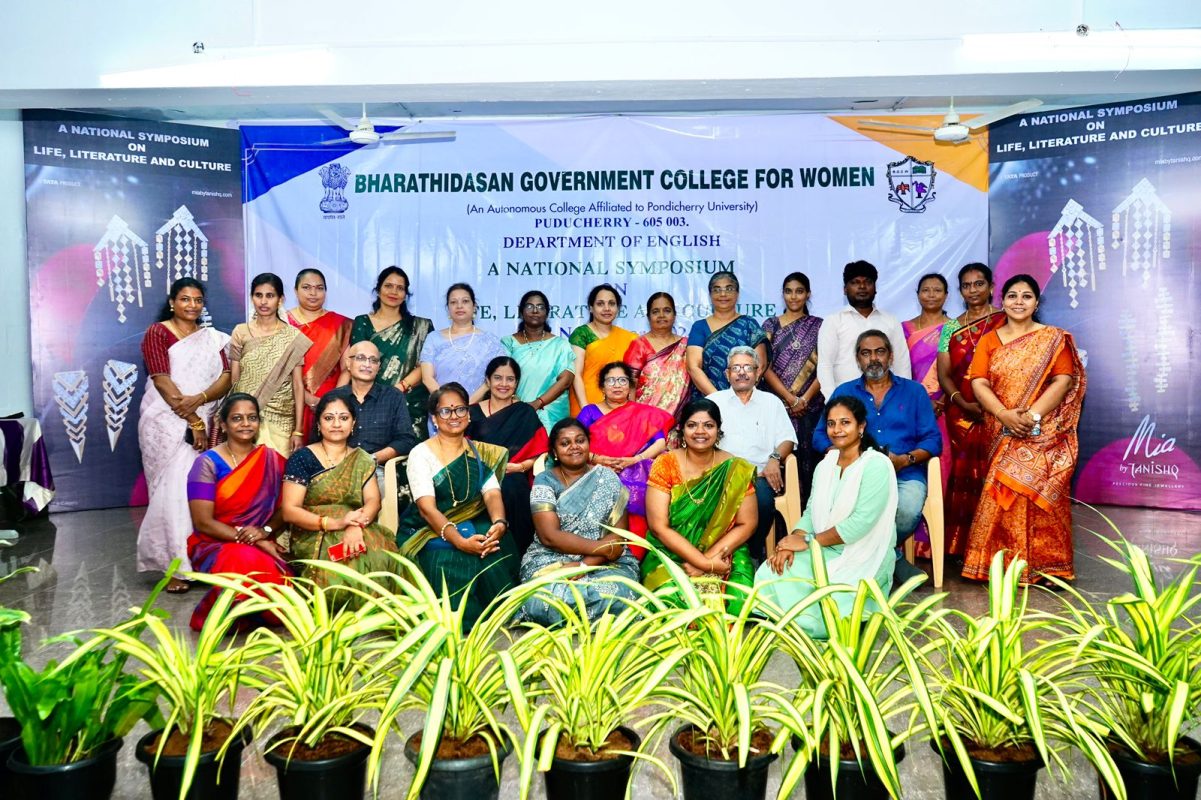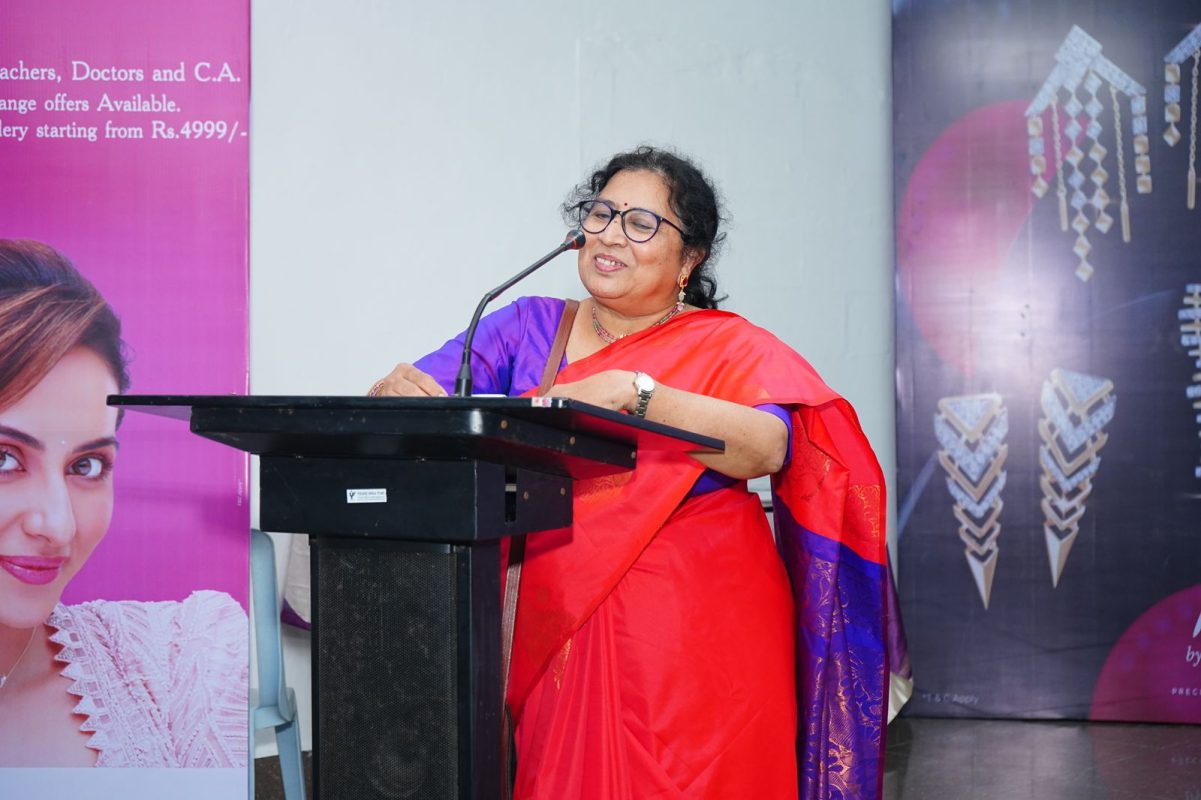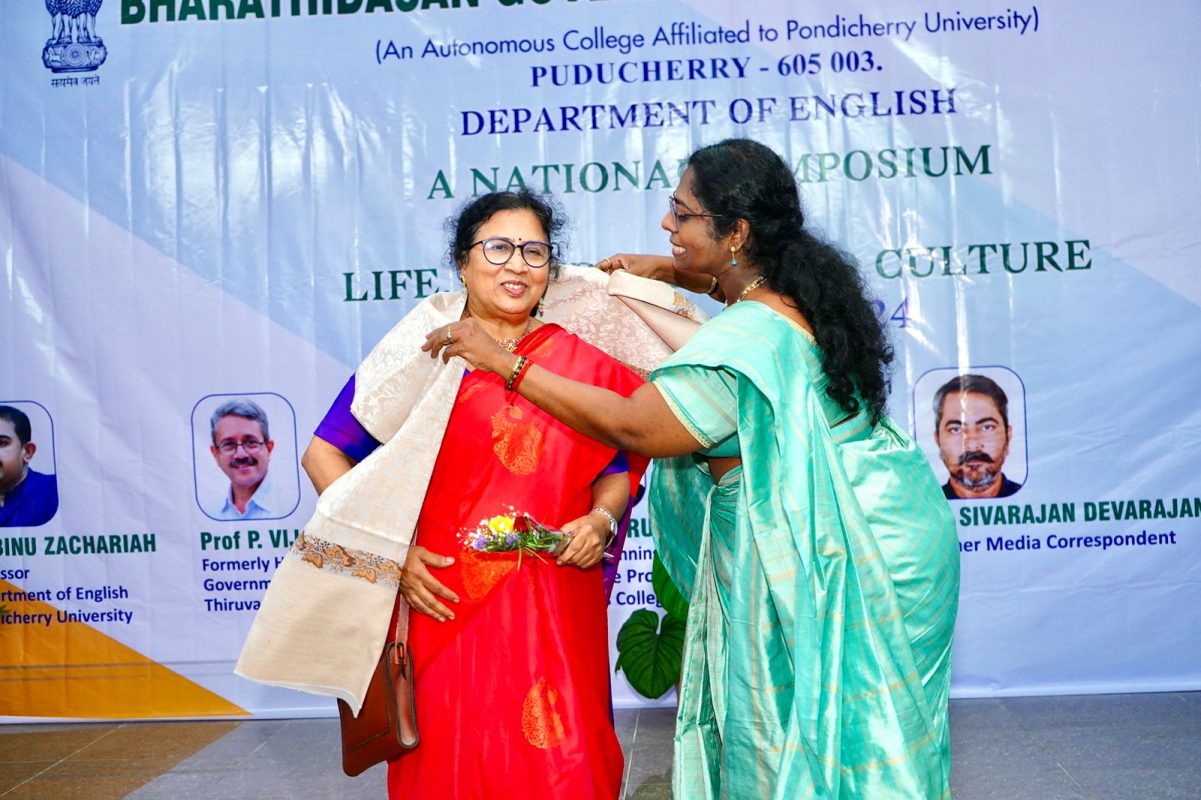Recently, I had the honour of delivering the valedictory address at the symposium titled “Life, Literature and Culture,” organized by the Department of English at Bharathidasan College, Pondicherry. A question that always haunts me at such events is how the key words in a title connect to literature and translate either into pedagogical concerns or the growth of knowledge.
With this in mind, I encouraged students and scholars to consider how these key words could help in evaluating literature and critically judging its role. I explained that life serves as the raw material through which stories are shaped, and culture provides the context. To illustrate this, I gave examples from films before moving on to literary texts.
I then discussed how the link between life, literature, and culture gave rise to what we now call Cultural Studies. I provided a brief background on the Birmingham School of Cultural Studies and highlighted the role of Richard Hoggart and others. I emphasized Hoggart’s work, The Uses of Literacy: Aspects of Working-Class Life, which initiated the concept of mass culture. Additionally, I explained the development of various theories aimed at reading literature in an objective manner.
In the latter part of my talk, I spoke about cultural literacy and quoted Naomi Segal’s article, “From Literature to Cultural Literacy”:
Cultural literacy is an attitude to the social and cultural phenomena that shape our existence—bodies of knowledge, fields of social action, individuals or groups, and of course cultural artifacts, including texts—which views them as being essentially readable: it is a way of looking at social and cultural issues, especially issues of change and mobility, through the lens of literary thinking.”
I explained that the “lens of literary thinking” means thinking critically by asking questions such as, “Why is this happening in the text?” “Who is speaking?” “How did this incident occur?” and “Is the title literal or ironic
After discussing various instances of cultural studies and touching upon the Bangalore-based Centre for the Study of Culture and Society (CSCS), I concluded with a quote from Stuart Hall:
“Of course, culture isn’t everything. But culture is a dimension of everything. Every practice exists in the material world and simultaneously signifies, is the bearer of meaning and value. Everything both exists and is imagined. And if you want to play in the area where deep feelings are involved, which people hardly understand, you have to look at culture.”
It was a very pleasant evening, and I cherished the opportunity to be with the department faculty, young students, and scholars.
Works Cited:
Hall, Stuart.. “Living with difference: Stuart Hall in conversation with Bill Schwarz.” Soundings, 37: 148-158. 2007.
Segal, Naomi. “From Literature to Cultural Literacy”. Humanities. 4. 68-79. 2015. 10.3390/h4010068.



